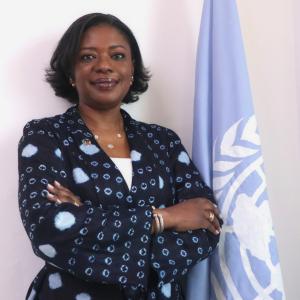Governor, LRR
Director General Department of Agriculture,
FAO Representative,
WFP Representative,
Seyfos and Alkalos,
UN Colleagues,
The Media,
All other protocols duly observed
It is an honor to join you in commemorating World Food Day 2024 under the theme “Water is Life, Water is Food. Leave No One Behind and deliver this statement on behalf of the UN Resident Coordinator.” This theme is both timely and vital, emphasizing the inseparable link between water and food security. It calls for urgent collective action to ensure sustainable water management for food production and equitable access to nutritious food for all.
Food is a basic human right, just like air and water. Yet today, despite advancements in food production, millions around the world still go to bed hungry. Currently, 733 million people face chronic hunger, and 2.8 billion are unable to afford a healthy diet. Conflict, climate shocks, and economic inequality exacerbate food insecurity, pushing communities to the brink of survival.
Smallholder farmers, particularly family farmers, remain the backbone of global food production, contributing significantly to the availability and diversity of food. However, they face mounting challenges due to climate change, biodiversity loss, and unsustainable agricultural practices. Alarmingly, only nine plant species account for 66% of global crop production, in stark contrast to the 6,000 species once cultivated. Biodiversity is not only crucial for preserving our ecosystems; it is essential for ensuring resilient food systems.
World Food Day serves as an opportunity to reaffirm our collective commitment to addressing hunger and malnutrition. Malnutrition, in all its forms, transcends borders and socio-economic classes. Whether it manifests as undernutrition, micronutrient deficiencies, or the rising issues of overweight and obesity, we are all affected. However, we must not accept this as inevitable. It is time to rethink how we produce, process, and consume food.
The UN Food and Agriculture Organization (FAO), World Food Programme, and the wider United Nations system remain fully committed to supporting national efforts to transform agrifood systems. Our UN Sustainable Development Cooperation Framework 2024 – 2028 prioritizes agrifood systems transformation to build resilience against shocks that threaten food security. We must ensure that food systems are inclusive, efficient, resilient, and sustainable while guaranteeing everyone’s right to nutritious food.
Transforming our agrifood systems will require robust collaboration across all sectors of society—governments, civil society, the private sector, and the international community. Engaging youth, who will be the drivers of future food systems, is critical. We must harness science and innovation—such as digital agriculture, biotechnology, and artificial intelligence—to enhance productivity, improve supply chain efficiency, and promote sustainable practices.
We stand at a crossroads. As the global community strives towards achieving the 2030 Agenda for Sustainable Development, addressing food security is not just a moral imperative; it is foundational for lasting peace and stability. No society can thrive when hunger persists.
I would like to reaffirm the United Nations’ dedication to supporting The Gambia in transforming its agrifood systems. We stand ready to collaborate with the government, private sector, and other key stakeholders to ensure that the investments we make today drive progress towards achieving the Sustainable Development Goals and national aspirations.
Thank you.








